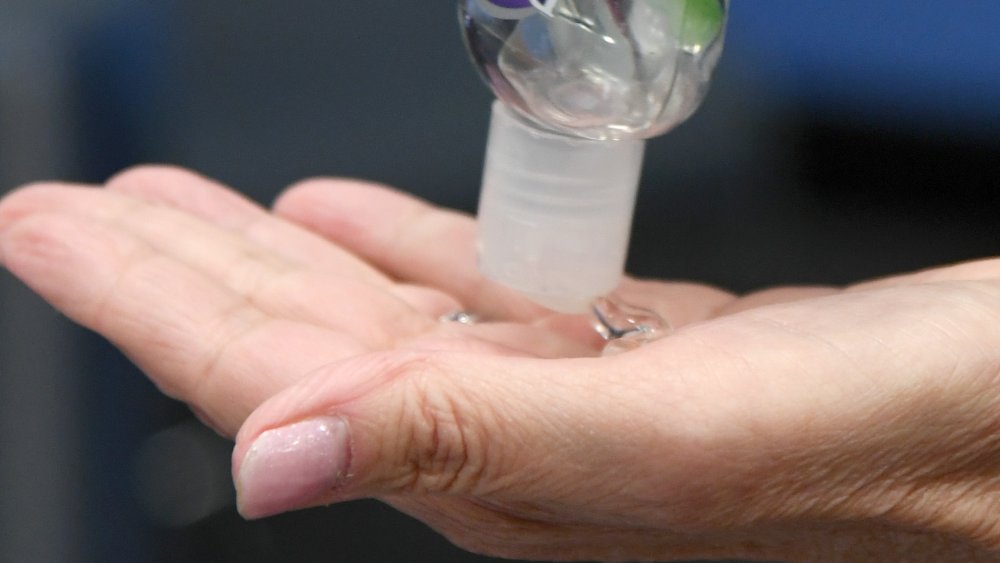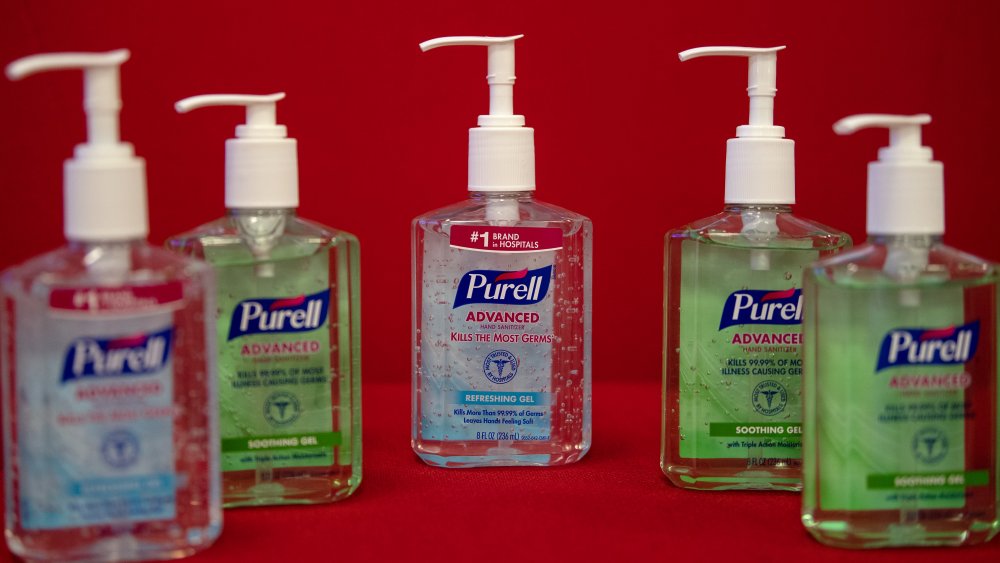The Real Reason Hand Sanitizer Has An Expiration Date
Recently, the world has found itself in the middle of a passionate love affair with hand sanitizer. Be it the gallon jug, plain jane, generic stuff that smells like a fire in an action figure factory, or the high-end, name brand, scented variety with an odor akin to lavenders burning in the field next to the flaming action figure factory, humankind just can't get enough of the stuff. Who knows why? Is there something in the news? Oh, right. Not only can you not find toilet paper anymore, but store shelves are equally depleted of hand sanitizer, forcing many people to dive deep, searching such forbidden nooks as the long-forgotten pocket on your driver's side door, in the hope that you might discover an abandoned mini-bottle of Purell.
Here's the upsetting truth: Hand sanitizer expires, apparently.
But why? And how? And, more importantly, why again? The answer, as it turns out, comes down to your weird uncle's two favorite topics of conversation at Thanksgiving dinner: alcohol, and government oversight.
Here for your protection
Starting at the top, you're probably well aware that hand sanitizer is primarily made up of alcohol. If you don't know this, don't worry, the teenagers in your life do, and they've considered weekend activities involving it ... which they hopefully didn't act upon, because drinking hand sanitizer is a terrible idea, unless you like getting violently ill, or dying.
Alcohol has a tendency to evaporate, and every time that you flip the lid or pump the pump on your bottle of cleanliness goo, you're exposing more of its contents to the unforgiving atmosphere of the outside world. As more alcohol disappears, the concoction becomes less effective in its valiant fight against germs, with Insider pointing out that it loses most of its stopping power once it dips below the 60% mark. And then, there's the fact that hand sanitizer, as a medical product, is regulated by the Food and Drug Administration, and their oversight comes with a necessary sell-by date. Hand sanitizer manufacturers can't put an exact time and day to when their gunk is going to go bad, but they estimate that it's around three years after the date of production.
Will it still work? Maybe, but not as well as it could. More importantly, it shouldn't necessarily have to. Hand sanitizer should be your "break-glass-in-case-of-emergency" solution to pandemic hygiene, filling in for a good hand washing only when a sink isn't available. Wash your hands, you filthy animals.

